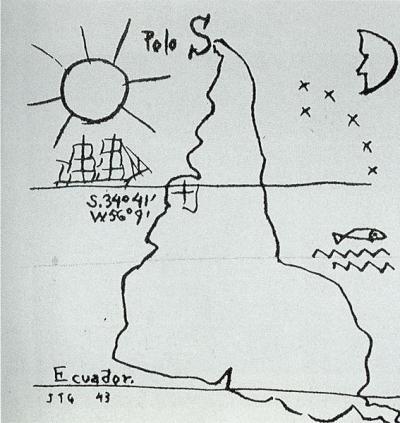Why Southernising Criminology?
For the inaugural session of the Southernising Criminology Discussion Group we were delighted to host Professor Máximo Sozzo of the National University of Litoral (Santa Fe, Argentina) one of the key founders of the ‘Southern Criminology’ intellectual paradigm. In this talk, Professor Sozzo outlined the parameters of the Southernising Criminological approach, before moving on to highlight its necessity within the discipline. Professor Sozzo’s own work focuses upon punishment, prisons, and policing in Latin America, as well as on travels of penal policies and vocabularies between the Global North and South.
Posted:
Time to read:
Defining southern criminology
Professor Sozzo defines ‘southern criminology’ as follows: ‘a collective project that tries to problematize, resist and change the relations of hierarchy, dependency and subordination between the Global North and South in the production of knowledge in the complex and polyvalent field of the social studies on the criminal question’. As was explained, the Southern turn in criminology links closely to other movements such as critical criminology and the work of counter-colonial, post-colonial and de-colonial criminologists. Drawing upon Raewyn Connell’s Southern Theory, the concept of the ‘global south’ moves beyond fixed geographical categories, and instead serves as a ‘metaphor for relations of domination and dependency between privileged and underprivileged regions of the world, which have been historically built through different colonial/neo-colonial processes and mechanisms’. Professor Sozzo points out that the ‘south’ is not a homogenous entity and suggests that we may turn to World Systems Theory and borrow the terminology of the ‘periphery’ and ‘semi-periphery’ to account for some of the heterogeneity.
Southernising criminology
In his talk, Professor Sozzo addressed the terminological discussion that has emerged as a reply to the term Southern Criminology. Some authors have argued that in coining this project as Southern Criminology, it could fragment the already highly fragmented field of criminology even more. Counter-productively, it could then reinforce ‘Western-centric’ Criminology as just Criminology. Sozzo, Carrington and Hogg had already anticipated and explicitly denied this possibility. Yet, the authors have acknowledged the necessity of finding alternative ways to avoid the aforementioned counter-productive interpretation. More recently, they have preferred to use the expression which also gives name to our Discussion Group: Southernising Criminology.

As was discussed in the talk, much of criminological knowledge focuses upon realities from the Global North but is posited as being ‘universal, timeless and placeless’. However, there are examples of the ‘metamorphosis’ of concepts from the North that are then reformulated within a Southern context. Professor Sozzo’s own work on the development of positivist Criminology highlights that. He analysed the important role played by Argentinian criminologists in the construction of the positivist paradigm in Criminology in the late 19th and early 20th centuries. He argues they were not only able to reformulate some initial claims of the positivist school in a local level, but were actively involved in theoretical exchanges with Northern (in this case, Italian) scholars, having crucially enriched that paradigm. More recently, other authors have shown how the Global South can revitalise criminological knowledge in its most varied topics, from Green Criminology to the sociology of punishment or the scholarship on policing.
Professor Sozzo concluded his talk by imagining a future where criminological theorising is exchanged in a horizontal manner between the ‘Global North’ and the ‘periphery’ and ‘semi-periphery’. His talk was followed by a lively discussion with a range of international participants.
The discussion group
If you are interested in attending future discussion sessions, please look out for updates on our webpage. Our discussions are currently held online on a Wednesday at 3pm (GMT) every fortnight during term time. We will be sharing our exciting line-up of speakers for Trinity Term in due course. We are also look forward to welcoming Professor Sozzo back to Oxford on 24-25 June this year, where he will be leading, in conjunction with Luiz Dal Santo, a workshop on ‘Punishment in Global Peripheries: Contemporary Changes and Historical Continuities’. We hope to see many of you then.

Share:
